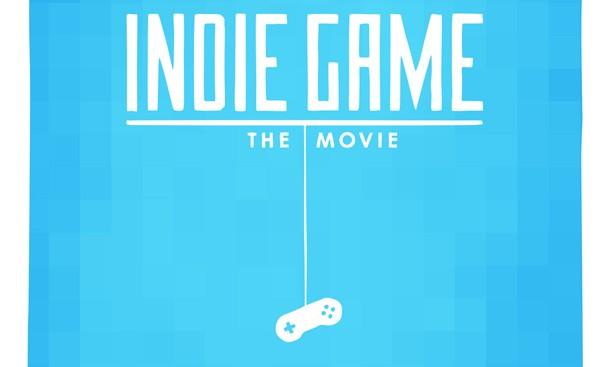I wasn’t sure what I wanted to watch last night, but I ended up deciding on Indie Game: The Movie. I had already seen this film when it came out in 2012, but for some reason, it seemed like just the right choice to round out my weekend. Something about seeing the box-art on Amazon Video sparked a need inside of me.
While watching Indie Game: The Movie, something dawned on me; this is a must-watch for anyone who enjoys video games.
The Premise
Indie Game: The Movie focuses on the world of independent game development, as you may have guessed based on the title. More specifically, the movie follows the paths of three different indie developers. These groups include the team behind Super Meat Boy, Fez, and Braid.
If you enjoy video games, all the above titles should pop out at you for their overwhelming success. Here’s the thing though: at the time of filming, only Braid was a known quantity. Both Fez and Super Meat Boy were no more than highly anticipated titles.
As a documentary, Indie Game: The Movie does a great job building the characters as the story is told. We have Tommy and Edmund from Team Meat, Phil from Polytron, and Jonathan from Number None. Each of these individuals helps push a particular narrative point forward, but more importantly, they genuinely open up and let the viewer into their lives.
This raw view into what it is like to be an indie developer is what carries the movie. Had the director of the film elected to focus on the games instead of the people who make them, I would not be here writing this article today.
The Characters
I mentioned that the people are what makes Indie Game: The Movie shine, so I want to take a second to highlight the people in the movie.
Jonathan Blow is the most established game designer in the film. He is introduced as someone with more than twenty years of experience in the industry, and the designer of the hyper-successful indie game Braid. Jonathan is portrayed as thoughtful, creative, and even a touch philosophical.
Phil Fish is a central point of the documentary, as the creator of Fez. Initially, Phil is portrayed as a future rock star in the industry. Phil’s character ends up being the most interesting, as his path to success is not as straightforward as you may think.
Finally, we have Tommy and Edmund. These guys have always been my favorite characters in the documentary. They are just two guys who are trying to make the game they want to play. As weird as the concept behind Super Meat Boy seems, it is clear that Tommy and Edmund have a crystal-clear vision.
Key Arcs
I don’t want this to turn into a review for an eight-year-old documentary, but there is some requisite knowledge that needs to be transferred to make my final point, so please bear with me. I promise we are working towards the payoff.
The story of Jonathan is one of a successful, thoughtful, independent developer. As someone who put so much of himself into Braid, you would assume that his arc would show us what it is like to be thrust into the stratosphere of top game developers. It kind of does, but in a more human way.
Though Braid was, and still is, one of the most successful indie games of all time, we see Jonathan beat up on the internet. Some people don’t get the game, and Jonathan tries to head it off by being active in the comment sections. Directly defending himself turns out to be the wrong move and has him highlighted as pretentious.
Phil’s arc starts with the award he won for his upcoming game, Fez. Quickly, we find out that the project is years behind. Phil is dealing with dwindling funds, an angry fan base, an ex-partner who could jeopardize all, and, most of all, some level of self-doubt. Hell, at one point, Phil tells the film crew, in a very measured tone, that he will kill himself if his project never comes to fruition.
Finally, we get to watch Tommy and Edmund work, day and night, on their passion project. From dealing with working on opposite sides of the country to money issues, to deals with Xbox not coming to fruition, these guys run themselves ragged, getting Super Meat Boy out.
Though in the end, spoiler, they are all successful, the journey is never comfortable.
Why Everyone Should Watch
Now that we have summarized Indie Game: The Movie as quickly as possible, it is time to explain why every video game fan should take the hour and a half to watch it.
The Human Element
The biggest reason you should watch this documentary is the people. Not because they are characters, but because they allow the viewer to see the actual cost of developing games. This cost can come in many forms, including monetary, physical stress, emotional damage, and so much more.
It is effortless, painfully so, to forget that actual human beings make the games we play. It is straightforward to sit back and criticize mechanics, art choice, game pricing, and story choices. What is not easy is to think about what those designers and programmers may be going through. Are they sacrificing a healthy meal and sleep to push out one more feature? Are they fighting with a publisher about advertisements? Is their ex-partner threatening to kill the entire project?
Effort/Industry
This movie is essential if only to show the level of effort required to make a video game. Even seeing the effort at a small scale will give you an appreciation for what occurs when building a blockbuster game.
It’s easy for us as consumers to demand more for our money, but when you see the pure effort that goes into making a game, you may relax a bit. Phil has a great soundbite at one point where he is discussing how long it is taking for him to finish Fez. He says something to the effect of: “Triple-A titles take five years to complete with thousands of people working on them; we have two people here.”
Not to belittle independent games, some of my favorite experiences come from independent studios. Still, when you consider the quality of a Triple-A title, it’s incredible they can do what they do with only one thousand people. The quality and depth of experience we expect is the reason crunch and overworking are so prominent in the industry.
We Could Chat All Day
There is a lot more to be taken away from Indie Game: The Movie, but I don’t want to ramble on for too long. There is some conversation to be had about games as art versus entertainment as well as discussions around what a game is worth. These may not be conversations you want to have, nor are they new conversations that need to be had, but this documentary reignited these thoughts in my mind.
Conclusion
In a day where we expect more of the gaming industry (both large studios and small independent developers), it is important to gain some perspective. Perspective, in my opinion, is precisely what Indie Game: The Movie provides.
Do I think that making every consumer watch this documentary will change opinions or fix the industry? Probably not. I do, however, believe it could spark some useful discussion. It’s funny how an eight-year-old movie can provide us with so much food for thought, especially in an industry known for evolving at the speed of light.
My recommendation is to hop on Amazon Movies and give Indie Game: The Movie a watch.
Follow Gamezo to stay up to date on all of your gaming news and reviews.

